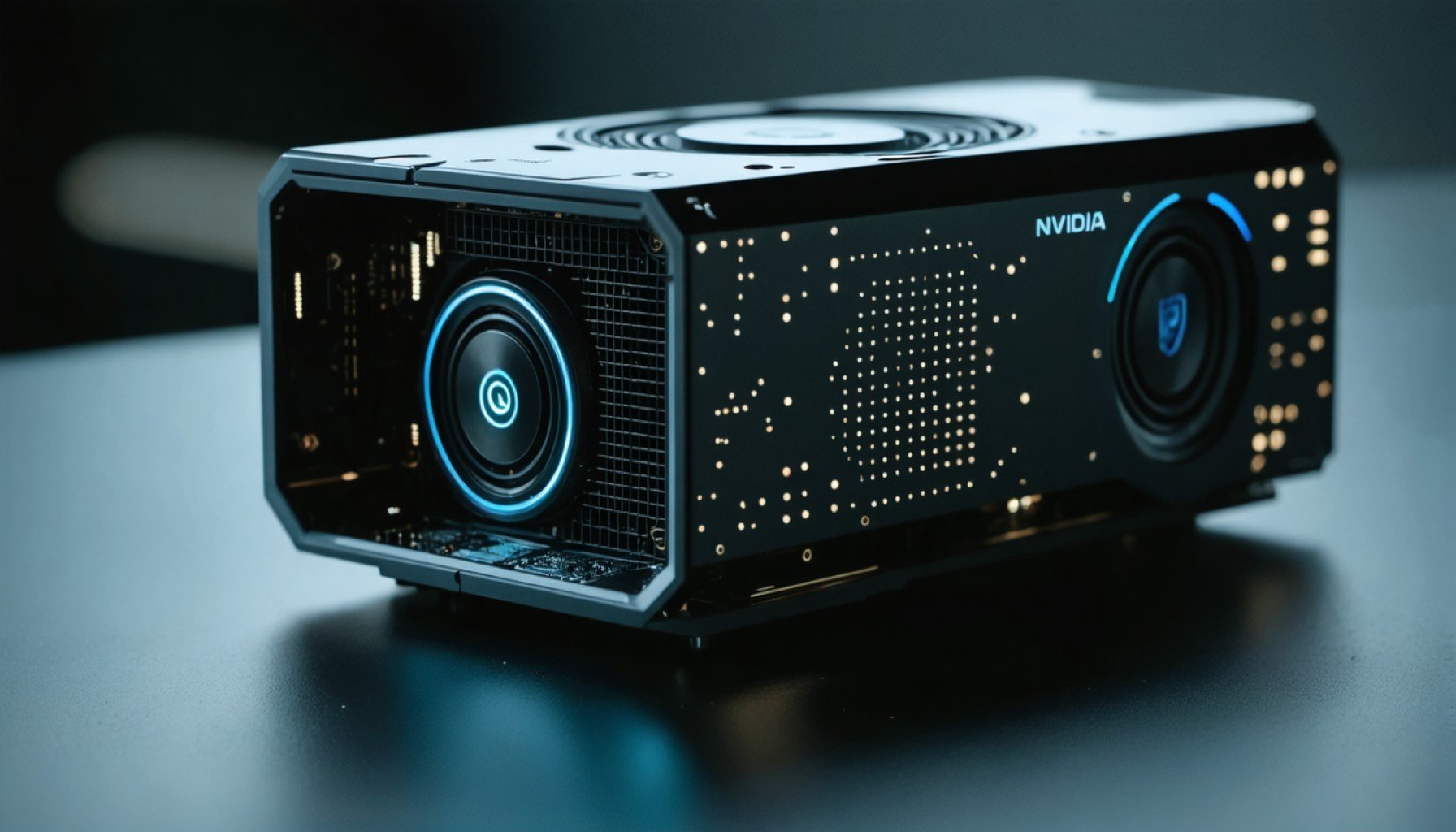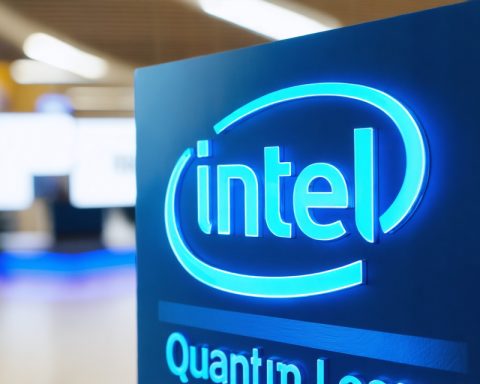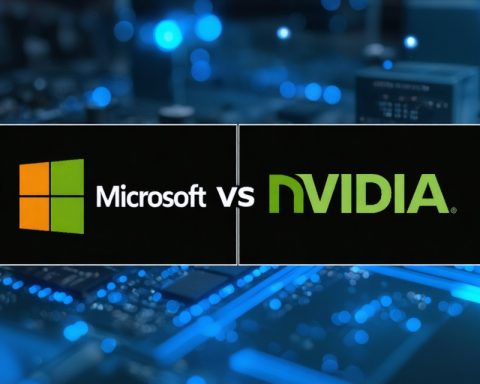- Chips are fundamental to AI advancement, with Taiwan Semiconductor Manufacturing Company (TSMC) and ASML playing critical roles.
- TSMC functions as a neutral contract manufacturer, producing chips for major tech companies, driving AI-related revenue growth by 20% over five years.
- ASML’s monopoly on extreme ultraviolet lithography machines positions it as a leader in cutting-edge chip fabrication despite geopolitical restrictions.
- TSMC and ASML are attractive investment opportunities, with forward earnings ratios of 22 and 30, respectively, highlighting growth potential.
- Investing in these chip manufacturers offers the potential to lead and profit alongside the expanding AI market.
- The burgeoning chip industry presents a pivotal moment for savvy investors to capitalize on AI-driven demand.
Amid the relentless march of artificial intelligence, a silent but potent force powers this revolution: the humble yet mighty chip. Investors seeking growth amidst the AI frenzy should focus not just on software, but also the hardware that underpins it—namely, the chips critical to AI advancement.
Consider Taiwan Semiconductor Manufacturing Company (TSMC) and ASML, two titans quietly steering the AI ship from the shadows. TSMC doesn’t design chips; instead, it stands as a formidable contract manufacturer, crafting masterworks for tech giants like Apple and Nvidia. In this role, TSMC holds the enviable position of neutrality, manufacturing technology for various competitors, securing its foothold with all parties in the AI arms race. Their bullish outlook foresees AI-related chip revenue skyrocketing, driving a 20% surge in overall growth over the next five years.
Meanwhile, over in the Netherlands, ASML wields a technological monopoly with its extreme ultraviolet lithography machines—an exclusive key to cutting-edge chip fabrication. Though geopolitical tensions mean some models are restricted from sale to China, the global demand for their industry-leading technology ensures solid growth prospects, with revenues still projected to soar despite sanctions trimming their forecasts.
Now is opportune for savvy investors. TSMC, inexplicably priced at a mere 22 times forward earnings, and ASML at 30 times, offer substantial growth potential, each firm dominating its unique niche. As AI continues to expand, boosted by these indispensable chips, both companies promise not just participation in the tech boom, but leadership.
Amid the burgeoning chip landscape, these players aren’t just riding the wave—they’re making it. For those seeking a lucrative slice of the tech pie, the message is clear: seize the moment and invest in these chip champions.
Discover How Chip Giants Power the AI Revolution: Invest in the Future Today!
How-To Steps & Life Hacks: Investing in AI Chip Manufacturers
1. Research Market Leaders: Begin by studying major players like TSMC and ASML to understand their roles in the industry and how they contribute to AI advancements.
2. Analyze Financial Reports: Examine financial statements and growth projections from trusted sources like annual reports and industry news.
3. Evaluate Geopolitical Factors: Consider how geopolitical issues, such as trade restrictions with China, affect these companies.
4. Diversify Your Portfolio: Don’t rely solely on chip companies. Balance your investments with software and other tech sectors for stability.
5. Stay Informed: Regularly update your knowledge by following tech news and market analysis.
Real-World Use Cases of AI Chips
AI chips are pivotal in powering technologies across numerous sectors:
– Healthcare: From diagnostics to robotic surgeries, AI chips enhance precision and speed.
– Automotive: Enable advances in autonomous vehicles and smart driving features.
– Retail: Improve inventory management and customer experience through data analytics.
– Finance: Aid in fraud detection and risk management through pattern recognition.
Market Forecasts & Industry Trends
– AI Chip Market Growth: According to Market and Markets, the AI chip market is projected to reach $83.2 billion by 2027, growing at a CAGR of 39.9% from 2020 to 2027.
– Focus Areas: Expect increased investments in edge computing and the integration of AI across consumer electronics, emphasizing the need for advanced chips.
Reviews & Comparisons: TSMC vs. ASML
– TSMC Strengths: Known for advanced node technology and robust client relationships, TSMC excels in high-volume production capabilities.
– ASML Advantages: Dominates with its EUV lithography technology, essential for modern chip production, maintaining a competitive edge despite regional sales limitations.
Controversies & Limitations
– Supply Chain Issues: Pandemic-related disruptions have shown vulnerabilities in global supply chains, affecting timely chip production and delivery.
– Geopolitical Risks: Export restrictions and political tensions, particularly involving China and the US, can impact operational and financial performance.
Features, Specs & Pricing
– TSMC: Specializes in nodes as small as 5nm, crucial for high-performance computing applications.
– ASML: Offers EUV lithography machines critical for producing smaller and more efficient chips, with a single machine priced around $150 million.
Security & Sustainability
– Sustainability Efforts: Both companies are investing in energy-efficient technologies to reduce carbon footprints. TSMC emphasized reducing greenhouse gas emissions, while ASML focuses on water conservation.
Insights & Predictions
– Industry Consolidation: Expect mergers and acquisitions as companies strive to secure technology and talent.
– AI Expansion: Growth in AI applications will drive further innovation and competition, enriching the chip market landscape.
Tutorials & Compatibility
– Investor Toolkit: Utilize platforms like Bloomberg or Yahoo Finance to track stock performance, and consider virtual seminars offered by investment firms to enhance your understanding of the semiconductor market.
Pros & Cons Overview
Pros
– Direct involvement in AI’s rapid expansion.
– Dominant market position with innovative technology.
– Attractive investment prospects with expected growth.
Cons
– Vulnerabilities to geopolitical disputes and supply chain challenges.
– High valuation could be a barrier for some investors.
Actionable Recommendations
– Invest Gradually: Consider dollar-cost averaging to mitigate entry risks.
– Leverage Dividends: If applicable, reinvest dividends to compound your investment.
– Stay Agile: Be prepared to adjust your strategy based on market trends and news updates.
By capitalizing on the immense potential of AI chips, investors can engage with a sector primed to transform industries worldwide. Don’t miss the opportunity to be part of this groundbreaking movement. Explore further with TSMC and ASML to deepen your investment knowledge today.











